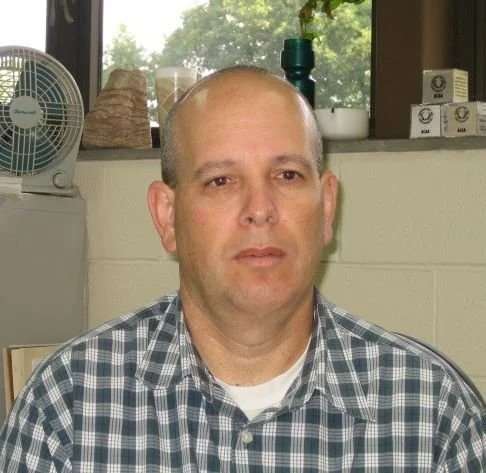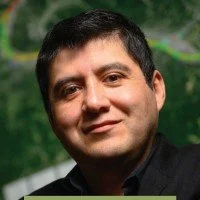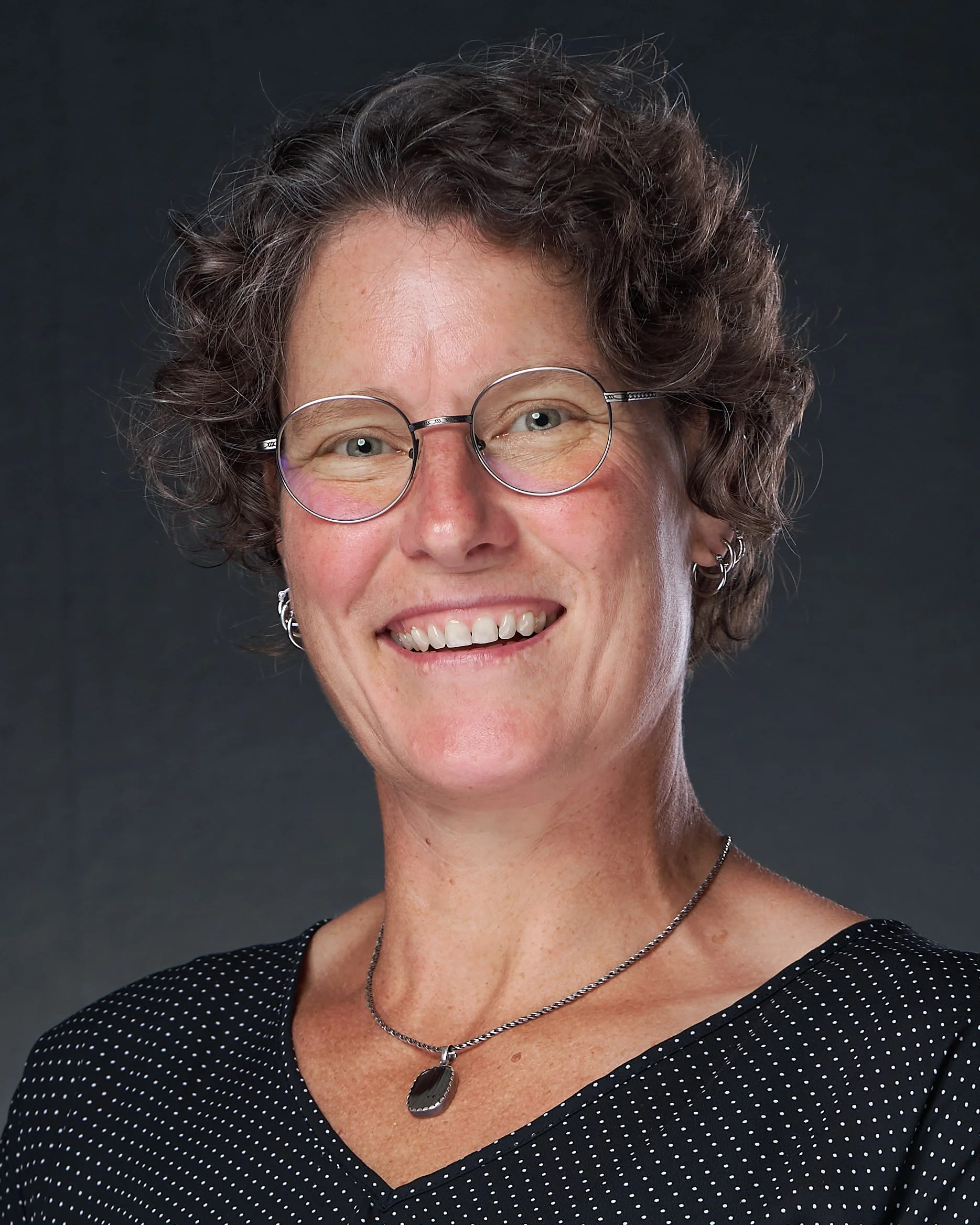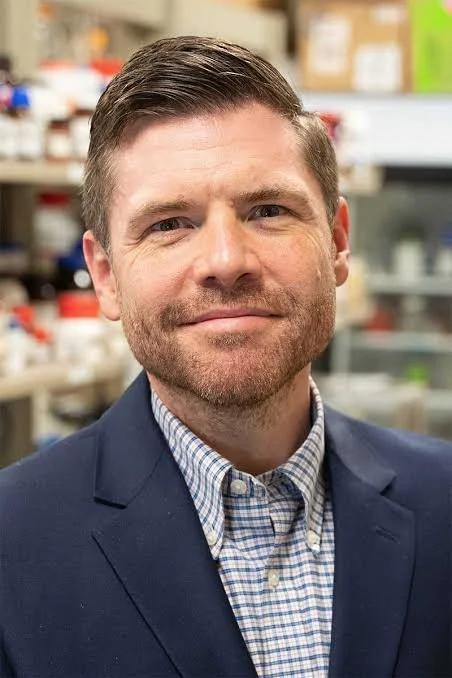Mentors, Theme 1 (water use & quality)
Mentors in this theme work on diverse projects related to water quality, including land use impact on stream quality; modeling climate change and water; freshwater springs; and the impact of extreme weather events on natural systems. For more detail, visit our Theme 1 page.
Year 2 (2025-6)
-
Dr. Hass is Associate Research Professor at West Virginia State University. His project is aimed at understanding and improving restoration of highly disturbed lands to regain their natural ecosystem role and services. Special emphasis is directed at restoring soil and water quality in previously mined lands.
-
You will learn about the soil-plant-water nexus and the underlying biogeochemical processes governing the system, gain proficiency in field soil and water sampling processing and handling; installation and operation of field monitoring instrumentation; operating, method development, and trouble shooing of analytical instrumentation such as ICP-OES, ICP-MS, TOC analyzer, Ion Chromatography, etc.; and conducting lab assays and analysis.
-
You will work in conjunction with local environmental consulting firms, environmental federal or state regulatory agencies, land owners, and surface coal mining operators.
WVSU
-
Dr. Arantes is an Assistant Professor at West Virginia University. Her project is related to vulnerable communities in central Appalachia facing the greatest risk of extreme river flooding based on historic river flow data and spatiotemporal distribution of extreme events. In these locations, we will monitor river conditions as well as water quality and microbial organisms, including pathogens and fecal indicator bacteria (e.g., Escherichia coli) that are linked to adverse public health effects. The data will be contrasted with perceptions of vulnerable communities on flow effects and adaptations responses to the risks of extreme flooding events and its effects on health outcomes.
-
You will gain skills in fieldwork data collection and laboratory analyses of water quality as well on how to develop and conduct interviews to understand the perceptions and adaptation strategies of vulnerable communities on flow effects. You will gain experience handling flow data to examine the spatiotemporal distribution of extreme events.
-
You will collaborate with students in the Garner lab and colleagues at West Virginia University.
WVU
-
Dr. Vesper is a Professor at West Virginia University. Her project is related to Freshwater springs and their long history of supporting early human civilizations and uniquely evolved ecological systems. Even in modern times springs provide significant water resources; however, they are often vulnerable to climate change, extreme storm events, land use change, and contamination. Project participants will complete Spring Ecosystem Assessments throughout the region evaluating spring health and suitability to provide ecosystem services into the future.
You will work in close collaboration with Brent Murry, so the project is similar to his.
-
Everything we work on will be cached within the scientific method and critical thinking and will focus on the co-production of science to support management outcomes by partnering with local and regional groups with interest in spring management. Mentors will help mentees develop reasonable hypotheses and objectives and guide mentees in applying appropriate field and laboratory methodologies; which will include for example (non-exhaustive list): water chemistry analysis, including E. coli and fecal coliforms, sediment measurements, plant identification, macroinvertebrate, fish, and salamander capture, identification, and quantification, geologic evaluations, assessment of surrounding land use, watershed identification, threat identification, and quantification of vulnerability. We will identify regional conferences to attend and present our finding at. Ultimately we will report back to appropriate stakeholder groups.
-
You will work with the West Virginia Department of Tourism, community leaders, e.g. Berkley Springs and other communities that maintain springs as tourist attractions. The West Virginia Department of Environmental Protection who oversee state-wide water quality, Monroe County Historic Society (resort springs), staff at Lost River State Park, among others.
WVU
Year 2 (2025-6)
Year 2 (2025-6)
-
Dr. Ranasinghe is an Assistant Professor at West Virginia State University. His project is based on toxic contaminants. Toxic contaminants are the group of chemicals found in the environment that can cause serious health issues and environmental impact if not removed properly. One of the main class of such compounds are per- and polyfluoro alkyl substances (PFAS) that are also known as “forever chemicals.”
The research is mainly focused on removing selected PFAS in drinking water. It is a carbon chain with fluorine atoms bonded to carbon thus making it resistant to degradation, while also causing many health risks such as cancer and multiple birth defects. These chemicals cannot be removed efficiently from polluted water using standard treatments from wastewater facilities leading to these dangerous chemicals being found in the blood of over 90% of humans. This research explores how advanced oxidation processes (AOPs) can be used to remove these chemicals. In my research, batch reactions are carried out using UV radiation, hydrogen peroxide and ozone. The concentration of the PFAS is monitored by analyzing aliquots with liquid chromatography mass spectrometry (LCMS). Once these toxic chemicals can be remediated efficiently and effectively, clean drinking water for humankind can be provided.
-
Valuable experience in sampling environmental samples, preserving them for analysis, sample preparation for analysis, instrumental analysis, and data analysis will be gained. You will also gain hands on experience in instrumental analysis of HPLC-MS, GC-MS, ISP-OES, ICP-MS, TOC, and other lab instrumentation. You will also learn report preparation and standard operating procedure (SOP) development.
-
You will work in conjunction with local chemical companies such as DOW chemical, DEP and local mining companies.
WVSU
-
Dr. Garner is an Assistant Professor at West Virginia University. Her project is on topics related to resilience of water resources and water infrastructure in communities vulnerable to flooding in Central Appalachia. Data will be collected to characterize water infrastructure vulnerability to flooding, as well as water quality and microbial organisms, including pathogens and fecal indicator bacteria (e.g., Escherichia coli) that are linked to adverse public health effects. Additionally, microbial source tracking markers will be quantified to assess the impact of specific sources of fecal contamination (e.g., humans, cattle, etc.).
-
You will learn about environmental sample collection and a variety of techniques used to analyze water quality, particularly those related to environmental microbiology and the use of molecular methods. This will include characterizing physiochemical water quality parameters, culturing of fecal indicator bacteria, and the application of quantitative polymerase chain reaction to characterize markers of fecal pollution from a variety of sources. In addition, the mentee will learn about best practices for data management and statistical analysis.
-
You will work with graduate and undergraduate students working in the Garner Lab on a variety of research projects related to water treatment, infrastructure, and health. In addition, you will collaborate with experts working on water quality and resilience to extreme weather events from a variety of fields, such as environmental studies, geochemistry, and law.
WVU
-
Dr. Murry is an Assistant Professor at West Virginia University. His project is related to Freshwater springs and their long history of supporting early human civilizations and uniquely evolved ecological systems. Even in modern times springs provide significant water resources; however, they are often vulnerable to climate change, extreme storm events, land use change, and contamination. Project participants will complete Spring Ecosystem Assessments throughout the region evaluating spring health and suitability to provide ecosystem services into the future.
You will work in close collaboration with Dorothy Vesper, so the project is similar to hers.
-
Everything we work on will be cached within the scientific method and critical thinking and will focus on the co-production of science to support management outcomes by partnering with local and regional groups with interest in spring management. Mentors will help mentees develop reasonable hypotheses and objectives and guide mentees in applying appropriate field and laboratory methodologies; which will include for example (non-exhaustive list): water chemistry analysis, including E. coli and fecal coliforms, sediment measurements, plant identification, macroinvertebrate, fish, and salamander capture, identification, and quantification, geologic evaluations, assessment of surrounding land use, watershed identification, threat identification, and quantification of vulnerability. We will identify regional conferences to attend and present our finding at. Ultimately we will report back to appropriate stakeholder groups.
-
You will work with the West Virginia Department of Tourism, community leaders, e.g. Berkley Springs and other communities that maintain springs as tourist attractions. The West Virginia Department of Environmental Protection who oversee state-wide water quality, Monroe County Historic Society (resort springs), staff at Lost River State Park, among others.
WVU
-
Dr. Rojano is an Assistant Research Professor at the West Virginia State University. His research efforts are focused on investigating the interaction between physics of the environment and biological systems. In particular, his interest is to know impact of climate and water on bio-phenomena. His studies integrate multi-scale and multi-processes into a single system using computational models. Currently his research topics are climate, water quality and greenhouse gases impacting rivers for the Central Appalachian Region as well as artificial intelligence applied to water, climate dynamics and ecological processes.
-
Under his supervision you will be encouraged to apply fundamentals of physics, chemistry and biology to real-world problems related with biological systems. Also, his training will consist of combining experimental data with modelling which can be physics-driven or data-driven approaches. Modelling options are statistics, fluid dynamics or the application of artificial intelligence algorithms.
-
You will be integrated into an interdisciplinary research working group focused on environmental studies at the West Virginia State University. Also you will interact with federal and state agencies.
WVSU
Year 2 (2025-6)
Year 2 (2025-6)
Year 2 (2025-6)
Year 2 (2025-6)
Mentors, Theme 2 (environmental contamination)
Mentors in this area work on research topics that address the impact of contaminants on environmental and wildlife health, the potential for mitigation or removal, and how those effects intersect with human health issues. For more detail, visit our Theme 2 page.
-
Dr. Spitzer is an Associate Professor at Marshall University. Her project investigates the interactions of bioaccumulated silver nanoparticles with physiological mechanisms in brain cells. Silver nanoparticles are an environmental contaminant of emerging concern, they are increasingly incorporated in consumer products and are widely found in environmental water systems. Silver nanoparticles cross biological barriers and bioaccumulate in the brain.
-
You will investigate neurodegeneration and changes in synaptic structure and function in response to silver nanoparticle exposure using mammalian neural cell culture and transgenic fluorescent C. elegans. You will gain experience in mammalian cell culture, immunocytochemistry, immunohistochemistry, fluorescence microscopy, confocal microscopy, immunoblot, C. elegans culture and experimentation, data analysis, and scientific writing.
-
You will work in conjunction with other project faculty and their lab members.
MU
Year 2 (2025-6)
-
Dr. Kolling is currently a professor and chairperson of the Department of Chemistry at Marshall University. His laboratory group’s current research focus is on tardigrade cryptobiosis and the role that reactive-oxygen species play in tardigrade responses to extreme conditions. The lab has experience with tardigrade husbandry, protein gel electrophoresis, conducting various physiological and biochemical assays, electron paramagnetic resonance (EPR) spectroscopy, and fluorescence confocal microscopy. In addition, we have a strong collaboration (currently funded by a collaborative NSF award) with the research group of Dr. Leslie Hicks at UNC Chapel Hill.
Dr. Kolling obtained a BSc in biochemistry and molecular biology from Pennsylvania State University, where he conducted undergraduate research on photosystem I in the laboratory of Dr. John Golbeck. In 2005, he received his PhD in biophysics and computational biology at the University of Illinois Urbana-Champaign during which time he performed research on the mechanism of the coenzyme Q–cytochrome c oxidoreductase in the research group of Dr. Antony Crofts. He completed his postdoctoral studies in the Dismukes group at Princeton University where he investigated the photoassembly of the oxygen-evolving complex of photosystem II. He joined the Chemistry faculty at Marshall University in 2009. During his academic career, he has been a co-author on 36 peer-reviewed publications, mentored over 60 students, and while at Marshall has received external funding from various agencies including two National Science Foundation grants.
-
You will learn about and utilize, enzyme assays, confocal microscopy, EPR spectroscopy, HPLC-MS, GC-MS, and algal and tardigrade culturing. In addition, you’ll gain experience in report preparation, experimental design, scientific writing, and mentorship of undergraduate scientists.
-
You will work in conjunction with other project faculty and their lab members.
MU
Year 2 (2025-6)
Mentors, Theme 3 (biological correlates of disease)
Mentors in this area work on research topics that address biological indicators of disease in the environment, including the impact of antibiotics, the role of wildlife as reservoirs of pathogen evolution, and environmental testing for infectious disease. For more detail, visit our Theme 3 page.
Year 2 (2025-6)
-
David Neff is a Technician in the Chemistry Department at Marshall University. His project involves the study of biofilm community morphology and genetic composition in surface waters and community wastewater.
-
You will use imaging (gram stain light microscopy and scanning electron microscopy), PCR methods, and genome sequencing to better define the microbial composition of the biofilm. You will learn techniques to collect, process, and analyze the microbiological component of surface and community wastewater. You will also be introduced to the broader field of infectious disease epidemiology. You will gain skills in water sampling methods, analyte concentration and isolation, microscopy (EM and light microscopy), and PCR.
-
You will work in conjunction with personnel from the CDC National Wastewater Surveillance System, the American Public Health Labs Surveillance Community of Practice, and the WV Bureau of Public Health. You will also collaborate with the Huntington Sanitary Board and Putnam Public Service District.
Year 2 (2025-6)
-
Dr. Shakirov is Assistant Professor at Marshall University. His research investigates telomeres, the essential protein-DNA complexes that cap linear eukaryotic chromosomes and regulate cellular aging and lifespan. In this project, you will analyze the effects of environmental factors, including bacterial infections, and lifestyle choices, such as Western high fat diet, on telomere length, aging, and disease outcomes in obese/diabetic and healthy mice.
-
You will learn how to measure telomeres, investigate how pathogenic bacteria can infect susceptible but not resistant host, evaluate the interconnected effects of obesity, lifestyle factors and environmental pathogen infections on telomere length and aging. You will receive training in the research fields of cell biology, bacterial pathogenesis, and telomere biology. You will also receive hands on experience in molecular and bacteriological methods such as real-time quantitative PCR, genomic DNA extraction and analysis, bacterial infections, experimental design, statistical data analysis, and scientific writing. The project will help you develop critical thinking and strong communication skills.
-
You will work in collaboration with the research faculty at the Joan C. Edwards School of Medicine, Marshall University, as well as with members of the Shakirov lab, and will have the opportunity to attend the General meeting of American Society for Microbiology and present posters/talks on your work.
MU
MU











